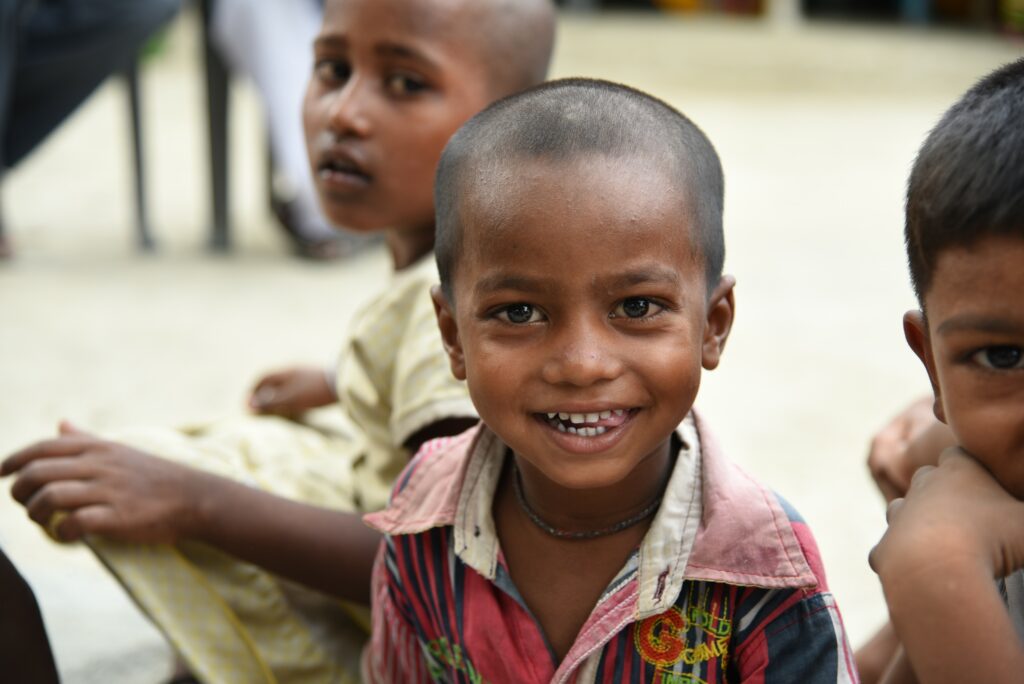
The Importance of Children’s Mental Health in Rural India
Summary/TL;DR on Mental Health in Rural IndiaMental health is crucial for children's overall well-being and development, especially regarding men....
Read MoreNutritional deficiencies in children occur when they do not receive the necessary vitamins, minerals, and nutrients required for proper growth and development. Common deficiencies include iron, vitamin A, vitamin D, zinc, iodine, and protein, each of which plays a crucial role in a child’s physical and cognitive well-being. Poor dietary intake, lack of access to nutritious food, inadequate healthcare, and insufficient parental awareness contribute to the widespread problem of deficiency in children. This can have severe short-term and long-term consequences, affecting a child's overall well-being and future potential. A balanced diet rich in fruits, vegetables, dairy, proteins, and whole grains is essential to prevent deficiencies.

One of the most immediate effects of nutritional deficiencies in children is stunted growth. Chronic malnutrition, especially during the first 1,000 days of life, can lead to stunted height, weak bones, poor muscle development, and delayed motor skills. Stunted children are more likely to experience physical limitations, developmental delays, and an increased risk of non-communicable diseases later in life. This condition can also impact a child's ability to participate in physical activities, affecting their confidence and social development.
Nutritional deficiencies also hinder brain development, leading to delayed cognitive milestones, learning difficulties, and emotional instability. Deficiency in children, particularly in iron and iodine, has been linked to lower IQ levels, decreased attention spans, impaired memory, and difficulties in problem-solving. This can hamper academic performance and social interactions, ultimately affecting their future career opportunities and emotional resilience.
Malnourished children are also at a higher risk of experiencing anxiety, depression, and behavioral disorders. Without proper nutrients, the brain cannot develop and function optimally, which affects mood regulation and emotional intelligence.
A lack of essential nutrients weakens the immune system, making children more susceptible to infections and diseases. Malnourished children often suffer from frequent illnesses, prolonged recovery times, and increased mortality rates from preventable diseases such as pneumonia, diarrhea, and measles. Vitamin A deficiency, for example, is a leading cause of preventable childhood blindness and increases the risk of severe infections. Similarly, zinc deficiency can impair wound healing and immune response, making children more prone to severe illnesses.
Children with poor nutrition struggle to concentrate in school, leading to lower academic achievement. Malnourished children have reduced cognitive abilities, making it difficult for them to grasp concepts, retain information, and perform well in exams. Schools in areas with high malnutrition rates often report lower literacy levels and higher dropout rates due to the inability of students to keep up with academic demands.
Ignoring nutritional deficiencies in childhood sets the stage for chronic health conditions such as obesity, diabetes, cardiovascular diseases, and osteoporosis in adulthood. Poor early nutrition leads to metabolic disorders, increasing the burden on healthcare systems and reducing quality of life. Malnourished children often experience long-term physical weaknesses, poor muscle development, and a heightened risk of infections, affecting their ability to lead an active and productive life.
The long-term effects of childhood malnutrition extend beyond individual health. Poor nutrition results in decreased workforce productivity, higher healthcare costs, and economic setbacks. Nations with a high prevalence of malnourished children face reduced economic growth due to a less capable and skilled population. In developing countries, childhood malnutrition contributes to a cycle of poverty, limiting job opportunities and economic stability for future generations.
Early detection and intervention are crucial in preventing the adverse effects of nutritional deficiencies in children. Parents, caregivers, and healthcare professionals should prioritize regular health check-ups, balanced diets, and proper supplementation to ensure optimal growth and development. Key steps include:
Government and non-governmental organizations must work together to provide education and access to nutritious food, particularly in low-income communities. Raising awareness about the importance of early nutrition can help parents make informed dietary choices for their children.
By addressing nutritional deficiencies in children early, we can ensure a healthier and more prosperous future for the next generation. Governments, organizations, and communities must prioritize childhood nutrition to secure the well-being of future leaders and workforce contributors.
CRY India (Child Rights and You) plays a pivotal role in tackling nutritional deficiencies in children by implementing various programs aimed at providing nutritious meals, healthcare access, and parental education. Through community-driven initiatives, CRY ensures that children receive the right start in life, empowering them with better child health and brighter opportunities. The key initiatives include:
Early intervention in childhood nutrition is key to healthy development and lifelong success. When parents, educators, healthcare professionals, and policymakers prioritize nutrition, we build stronger individuals and societies, reducing healthcare burdens and driving economic growth.
By investing in early nutrition, we break the cycle of malnutrition and create a healthier, more productive future. Let’s ensure children receive the nutrition they need today for a brighter tomorrow.
Support CRY and make a difference today. Donate for a cause today!